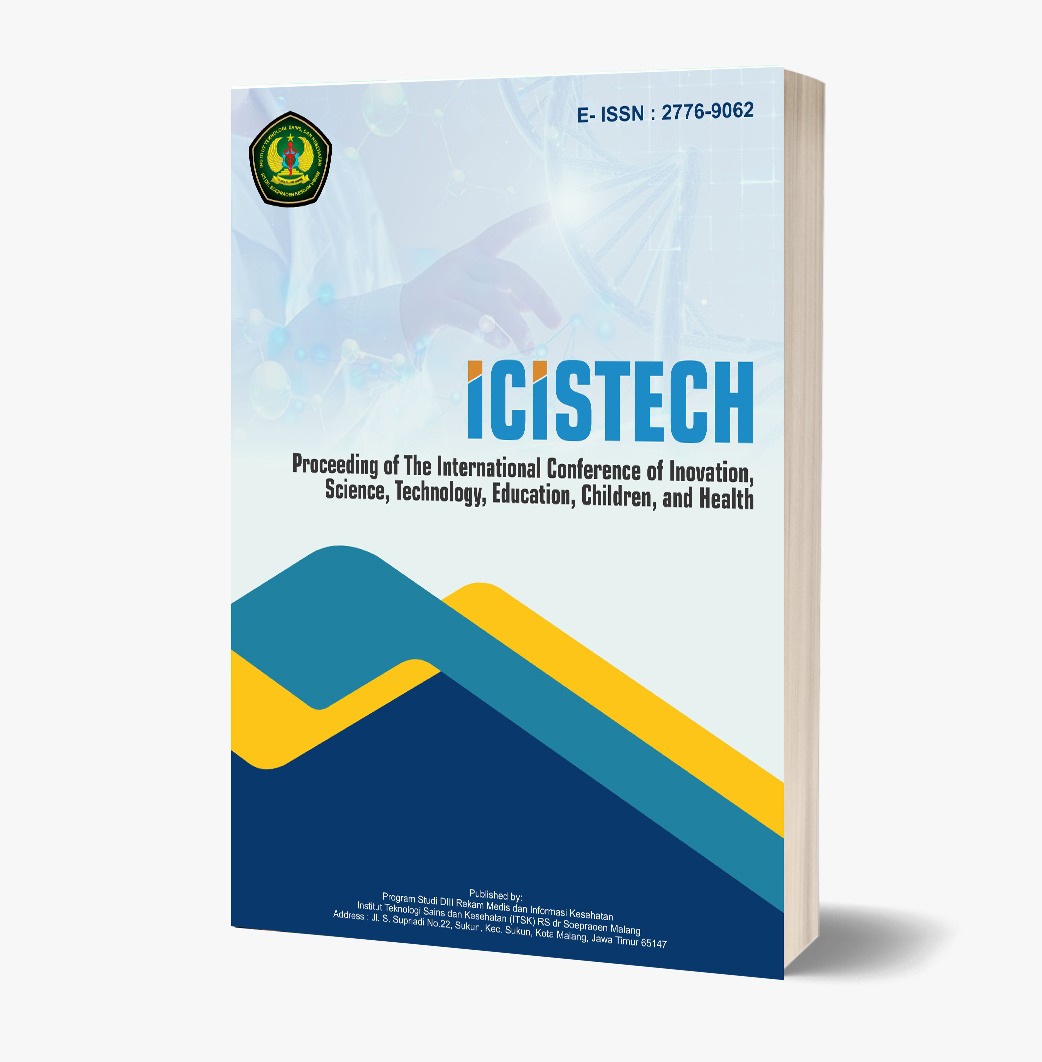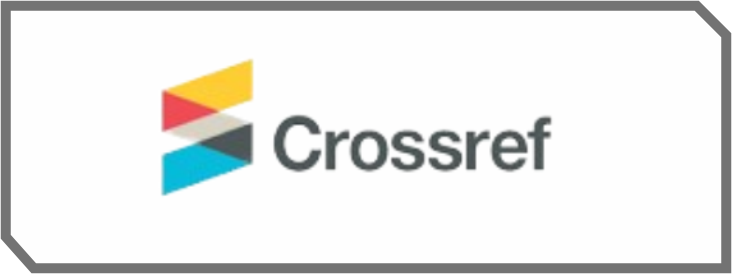Exploring How Cognitive Skills, Experience, and Motivation Drive Resilience in Community Health Volunteers Implementing Post-Pandemic Posyandu in Rural Indonesia
DOI:
https://doi.org/10.62951/icistech.v5i1.239Keywords:
Knowledge, Motivation, Primary care, Volunteers, Working periodAbstract
Posyandu is a community-based health program managed by and for the community, aiming to strengthen local health systems and facilitate access to essential health services. The temporary disruption of Posyandu services during the COVID-19 pandemic has had adverse effects on vulnerable populations such as pregnant women and toddlers, highlighting the importance of resilient volunteer performance post-pandemic. This study aims to examine the correlation between post-pandemic competence and the implementation of the five main activities by Posyandu volunteers in Malang, Indonesia. Utilizing a quantitative correlational research design, the study involved a total sample of 123 Posyandu volunteers from two villages in Malang. Data collection was conducted over July to August 2023. The findings indicate a statistically significant but weak positive correlation between volunteer knowledge and motivation, with a p-value of 0.007 and a correlation coefficient of 0.242. This suggests that while increased knowledge is associated with higher motivation levels, the strength of this relationship is limited. Further analysis assessed the relationship between length of service and volunteer motivation, revealing no significant correlation (p = 0.675, r = -0.038). These results imply that the duration of volunteer service does not influence motivational levels among Posyandu volunteers. Given these findings, enhancing volunteers’ knowledge through regular training and refresher programs is essential to maintain motivation and improve service delivery. The study recommends continuous capacity-building efforts to empower Posyandu volunteers, thereby ensuring effective implementation of health activities post-pandemic. Future research should investigate additional factors that may affect volunteer motivation, such as social support, recognition, and workload. Understanding these dimensions can further strengthen Posyandu programs and support the vulnerable community members they serve.
References
Afiatin, T., Nurvita, S., & Reginasari, A. (2024). Empowering Posyandu cadres through positive parenting psychoeducation to safeguard children from stunting. Jurnal Pengabdian Kepada Masyarakat (Indonesian Journal of Community Engagement), 10(1), 57. https://doi.org/10.22146/jpkm.80582
Afifa, I. (2019). Kinerja kader dalam pencegahan stunting: Peran lama kerja sebagai kader, pengetahuan dan motivasi. Jurnal Kedokteran Brawijaya, 30(4), 336–341. https://doi.org/10.21776/ub.jkb.2019.030.04.19
Dahlan, A. K., Umrah, A. S., & Mansyur, N. (2022). Faktor yang berhubungan dengan keaktifan kader Posyandu dalam usaha perbaikan gizi keluarga. Voice of Midwifery, 11(2), 52–58. https://doi.org/10.35906/vom.v11i2.158
Dinas Kesehatan Provinsi Jambi. (2020). Profil kesehatan Jambi Provinsi Jambi Tahun 2019. Jurnal Kesehatan Daerah, 53(9), 1689–1699.
Djuhaeni, H., Gondodiputro, S., & Suparman, R. (2010). Motivasi kader meningkatkan keberhasilan kegiatan Posyandu. Majalah Kedokteran Bandung, 42(4), 140–148. https://doi.org/10.15395/mkb.v42n4.26
Hamariyana, Syamsianah, A., & Winaryati, E. (2013). Hubungan pengetahuan dan lama kerja dengan ketrampilan kader. Jurnal Gizi Universitas Muhammadiyah Semarang, 2(April), 40–48.
Kemenkes RI. (2020). Keputusan Menteri Kesehatan Republik Indonesia Nomor HK.01.07/MenKes/413/2020 tentang pedoman pencegahan dan pengendalian Corona Virus Disease 2019 (Covid-19). Kementerian Kesehatan RI, 1–207.
Kementerian Kesehatan RI. (2019). Panduan orientasi kader Posyandu. Direktorat Promosi Kesehatan dan Pemberdayaan Masyarakat Kementerian Kesehatan RI, 1–78.
Khatimah, K., & Suryaningsi, S. (2024). Peran Posyandu untuk meningkatkan kesehatan masyarakat di Kelurahan Gunung Lingkas. Konstruksi Sosial: Jurnal Penelitian Ilmu Sosial, 3(4), 130–135. https://doi.org/10.56393/konstruksisosial.v1i12.1376
Lestari, E., Pamungkasari, E. P., & Dewi, Y. L. R. (2019). Multilevel analysis on the contextual effect of Posyandu on exclusive breastfeeding in Sleman, Yogyakarta. Journal of Maternal and Child Health, 4(4), 250–259. https://doi.org/10.26911/thejmch.2019.04.04.04
Marimbun, B. E., Mintjelungan, C. N., & Pangemanan, D. H. C. (2016). Hubungan tingkat pengetahuan tentang kesehatan gigi dan mulut dengan status karies gigi pada penyandang tunanetra. E-GIGI, 4(2), 0–5. https://doi.org/10.35790/eg.4.2.2016.13924
Muliawati, D. A., & Ra. (2013). Pilar dasar ilmu kesehatan masyarakat. Nuha Medika.
Notoatmodjo. (2018). Metodologi penelitian kesehatan. Rineka Cipta.
Purwandari, N. P., & Huda, S. (2022). Pengaruh media edukasi pencegahan Covid 19 (PEPC) melalui media poster dan WA untuk meningkatkan kesadaran masyarakat dalam memperhatikan protokol kesehatan. Jurnal Ilmu Keperawatan dan Kebidanan, 13(1), 122–128. https://doi.org/10.26751/jikk.v13i1.1288
RI, D. (2004). Petunjuk teknis penggunaan buku kesehatan ibu dan anak. Departemen Kesehatan RI.
Sandiyani, R. A. (2021). Lama menjadi kader, frekuensi pelatihan, pengetahuan gizi, dan sikap kader Posyandu dengan perilaku penyampaian informasi tentang pesan gizi seimbang. Jurnal Kedokteran Undip, 37. https://doi.org/10.22487/ghidza.v3i2.19
Siregar, D. S. (2019). Hubungan pengetahuan dan motivasi kader Posyandu dengan keaktifan kader dalam kegiatan Posyandu di Puskesmas Rasau Kecamatan Torgamba Kabupaten Labuhanbatu Selatan Tahun 2019 [Skripsi].
Tendelilin. (2010). No 主観的健康感を中心とした在宅高齢者における健康関連指標に関する共分散構造分析. Energies, 6(1), 7.
Yanti, S. V., & Hasballah, K. (2016). Studi komparatif kinerja kader Posyandu wilayah kerja Puskesmas Blang Bintang. Jurnal Keperawatan, 4(2), 1–11.
Downloads
Published
How to Cite
Issue
Section
License
Copyright (c) 2025 Proceeding of The International Conference of Inovation, Science, Technology, Education, Children, and Health

This work is licensed under a Creative Commons Attribution-ShareAlike 4.0 International License.













